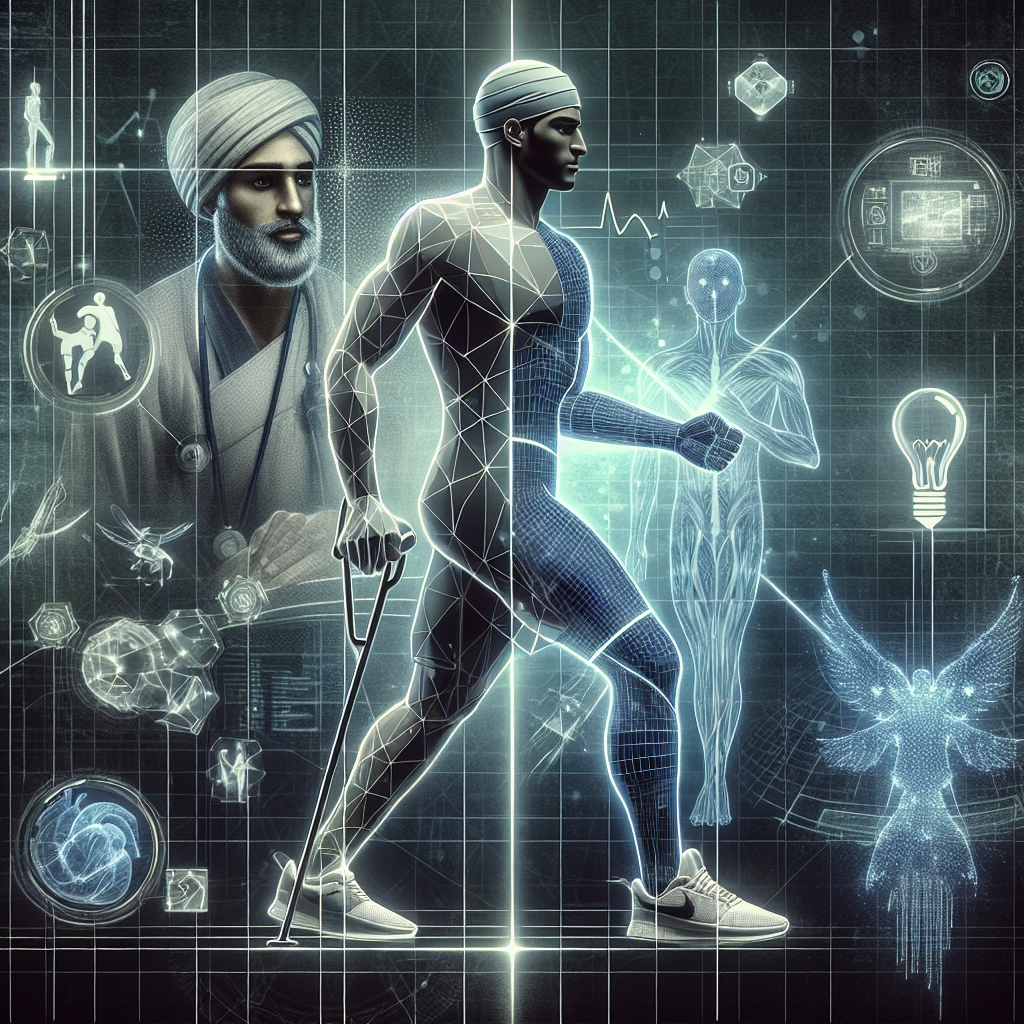In recent years, artificial intelligence (AI) has been making significant strides in various fields, including healthcare, finance, and transportation. One area where AI is also starting to show promise is in sports injury recovery. Athletes are constantly pushing their bodies to the limits, and injuries are an inevitable part of the game. However, with the help of AI, athletes can now benefit from more personalized and effective treatment plans to help them recover faster and get back to peak performance.
The Role of AI in Sports Injury Recovery
AI is revolutionizing the way sports injuries are diagnosed, treated, and managed. Here are some of the ways in which AI is making a difference in sports injury recovery:
1. Personalized Treatment Plans
One of the key benefits of AI in sports injury recovery is its ability to create personalized treatment plans for athletes. By analyzing data from wearables, such as heart rate monitors and accelerometers, AI can track an athlete’s performance, movement patterns, and recovery progress. This data can then be used to tailor treatment plans to the individual athlete, taking into account their specific needs and goals.
2. Predictive Analytics
AI can also help predict and prevent sports injuries before they occur. By analyzing data from past injuries, training loads, and biomechanical factors, AI algorithms can identify patterns and risk factors that may lead to injuries. Coaches and medical staff can then use this information to adjust training programs and techniques to reduce the risk of injury.
3. Virtual Rehabilitation
AI-powered virtual rehabilitation programs are becoming increasingly popular in sports injury recovery. These programs use motion tracking technology and AI algorithms to create personalized rehabilitation exercises for athletes. Athletes can perform these exercises at home or in the gym, with real-time feedback and guidance from the AI system. This allows athletes to continue their recovery outside of traditional therapy sessions, improving their outcomes and speeding up their return to play.
4. Remote Monitoring
AI can also enable remote monitoring of athletes’ recovery progress. By using wearables and AI-powered apps, coaches and medical staff can track athletes’ performance and recovery in real-time, even when they are not physically present. This allows for more proactive management of injuries, as well as better communication and coordination between athletes and their healthcare providers.
5. Injury Assessment
AI can assist in the assessment and diagnosis of sports injuries. By analyzing medical imaging, such as X-rays and MRIs, AI algorithms can help identify the extent of the injury, as well as any underlying issues that may be contributing to the injury. This can help medical staff better understand the injury and develop more targeted treatment plans.
FAQs
Q: How accurate is AI in predicting sports injuries?
A: AI algorithms are constantly improving in their ability to predict sports injuries. While they are not perfect, studies have shown that AI can accurately identify risk factors and predict injuries with a high degree of accuracy.
Q: Are AI-powered rehabilitation programs as effective as traditional therapy?
A: AI-powered rehabilitation programs have been shown to be just as effective, if not more effective, than traditional therapy in some cases. These programs can provide personalized exercises, real-time feedback, and remote monitoring, which can improve outcomes and speed up recovery.
Q: Can AI replace human coaches and medical staff in sports injury recovery?
A: While AI can assist coaches and medical staff in sports injury recovery, it cannot replace the human touch entirely. Human coaches and medical staff provide valuable expertise, experience, and empathy that AI systems cannot replicate. AI should be seen as a tool to enhance the capabilities of healthcare providers, rather than replace them.
In conclusion, AI is playing an increasingly important role in sports injury recovery, helping athletes recover faster and more effectively. With its ability to create personalized treatment plans, predict injuries, provide virtual rehabilitation, enable remote monitoring, and assist in injury assessment, AI is revolutionizing the way sports injuries are managed. While AI is not a replacement for human coaches and medical staff, it can complement their expertise and enhance the care provided to athletes. As AI continues to evolve and improve, we can expect to see even greater advancements in sports injury recovery in the years to come.

